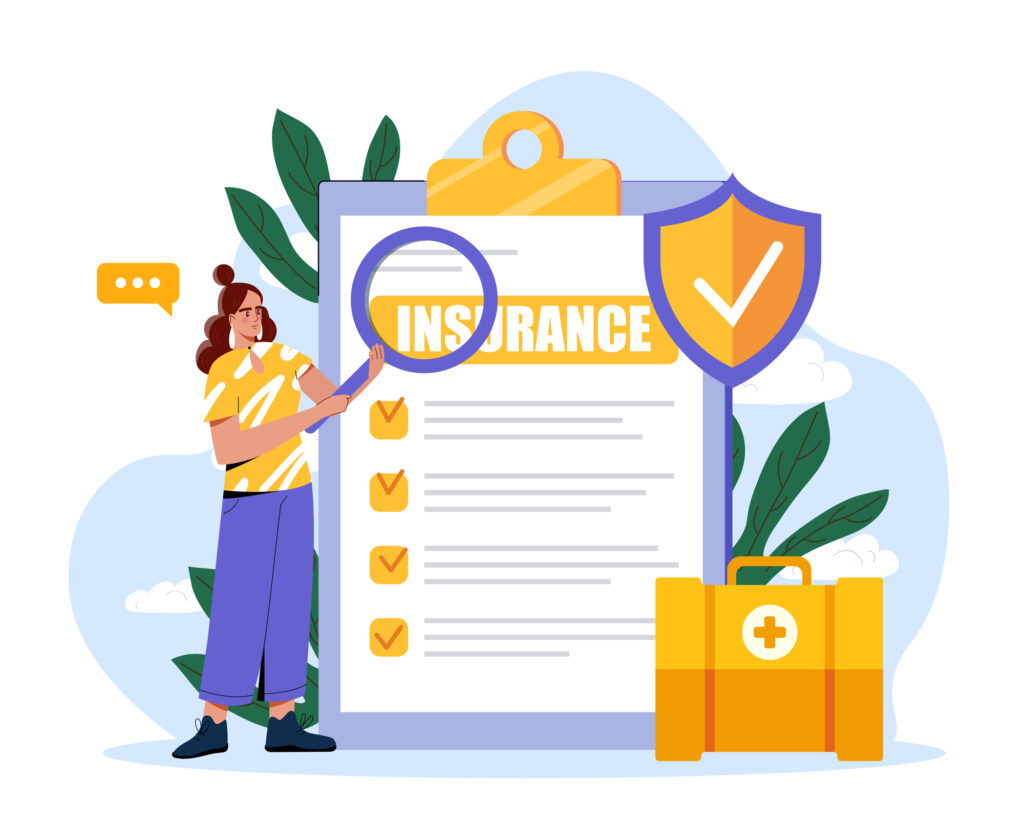 The thing about insurance is that it’s expensive and you may never have to use it. But if you don’t have it, you can face financial ruin should unfortunate events unfold. Don’t put yourself into a risky situation by not having the right coverage, and/or enough of it. Here are 5 traps that small businesses can easily fall into…and should be avoided.
The thing about insurance is that it’s expensive and you may never have to use it. But if you don’t have it, you can face financial ruin should unfortunate events unfold. Don’t put yourself into a risky situation by not having the right coverage, and/or enough of it. Here are 5 traps that small businesses can easily fall into…and should be avoided.
1. Being underinsured
If you don’t have enough coverage to pay for losses, the business can face serious financial consequences. Understand the extent of your potential exposure so you get sufficient coverage. For example, when covering your property, be realistic about what it would cost you to replace everything in the case of a catastrophe.
Be sure to review your coverage annually at renewal time and don’t automatically renew. Your needs may change (e.g., your business has grown and you need more coverage).
2. Having a homeowner’s policy without covering a home office
If your business is home based, your regular homeowner’s policy likely won’t automatically cover business-related losses. For example, if you have a client or customer who’s insured in your home, the cost of this business guest’s medical and other claims likely isn’t covered by your homeowner’s policy. The same is true for inventory you keep at home.
See whether you can simply add a rider to your homeowner’s policy to cover your business interests. The same is true for renter’s insurance. Or you may want a Business Owner’s Policy (BOP) to cover your business activities conducted in your home.
3. Using a personal auto policy for business driving
If you get into an accident while driving for business, the insurance company may deny any claims; accidents occurring while driving for business purposes are usually excluded under a personal auto policy.
- For a vehicle used exclusively for business, such as a delivery van, get a commercial auto insurance policy.
- If you use your personal vehicle for business driving, it may cover limited business driving. Be sure you understand the extent of coverage so you can decide whether you need a commercial auto insurance policy.
4. Ignoring certain types of coverage
Most small businesses carry have a BOP to cover liability from claims of third parties (e.g., a customer slips on your premises and is injured) and property protection (e.g., a fire in your office that damages your facilities, equipment, and inventory). But the scope of BOP coverage is limited and doesn’t address all contingencies. Here are some other types of coverage you might need:
- Flood insurance. In general, a BOP does not cover flood damage. You usually need a separate flood insurance policy. Check with the National Flood Insurance Program for details.
- Cyber liability insurance. Data breaches, ransomware, and other online catastrophes can be devastating, and small businesses are especially vulnerable. According to one source, 43% of cyber-attacks are on small businesses, and these attacks can be very costly with SMBs spending between $826 and $653,587 on cybersecurity incidents. If you retain customers’ credit card data or other highly sensitive information, see whether cyber liability insurance—as a stand-alone or add-on to a BOP—makes sense.
- Employment practices liability insurance (EPLI). If you have employees, you have potential claims against your company for wrongful termination, discrimination, sexual harassment, retaliation, and more. No matter how careful you think you are in treating employees and your workplace, things happen. The BOP does not cover these claims, so you need a separate EPLI policy.
- Business continuation/interruption coverage. If your business is forced to shut down due to a catastrophe—a fire on your premises, a storm or tornado destroying your property, etc.—many of your expenses do on and you likely won’t be getting the same, or even any, revenue during an interruption. Consider a policy to replace lost income, provide for rent at an alternative location, and for other expenses.
- Errors & omissions insurance. Professionals know this as malpractice coverage. If you are a professional rendering services, you could have claims of negligence or just bad advice. Again, the BOP does not provide coverage in these instances; you need and E&O policy.
5. Misclassifying workers
Employers must have workers’ compensation insurance and pay unemployment insurance for employees. This isn’t so for independent contractors. If you erroneously treat an employee as an independent contractor who later makes an insurance claim—worker’s comp or unemployment benefits—and is successful, you’ll have to pay the claims out of pocket and face serious penalties. Be sure to correctly classify workers so you maintain insurance for them if required.
Final thought
“The best we can do is size up the chances, calculate the risks involved, estimate our ability to deal with them, and them make our plans with confidence.” ~ Henry Ford
Insurance isn’t cheap, but it’s an essential cost of doing business. Work with a good insurance agent who can help you assess your risk to determine the types of policies to carry and the extent of coverage required, and can shop around to get you the best price.
For more information concerning business insurance, you may find help in this list of blogs.


